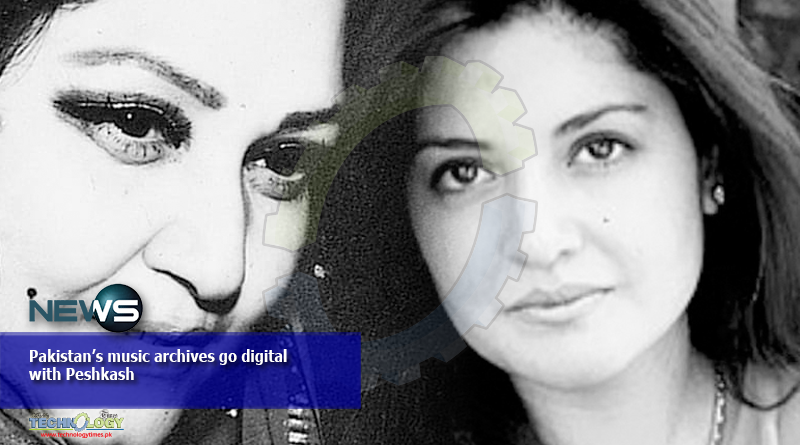Pakistan’s music archives have gone digital as Natasha Noorani, a singer, ethnomusicologist and festival organiser, after Lahore Music Meet and Apocalypse now has stunned everyone with her another project with Peshkash.

Pakistan’s music archives have gone digital as Natasha Noorani, a singer, ethnomusicologist and festival organzer, after Lahore Music Meet and Apocalypse now has stunned everyone with her another project with Peshkash.
According to Noorani: “Peshkash is designed to serve as a hub for Pakistan’s sonic history, Peshkash is currently developing, maintaining and curating a sound library of archival material including recorded sound art (primarily vinyl, cassette tapes and VHS) and oral narratives (of industry members) to further research and awareness regarding Pakistani music. We’re attempting to collect as much data for the years 1947 to 1999.”
She said: “We are frequently rebuked for how disconnected our generation is from the music of Pakistan, there aren’t any avenues of accessibility to it”
“So unless you exist in a particular domain of cultural capital, you don’t get access to music of the past or its relevance. Peshkash translates to showcase, offering, presentation,” she explained.
The main idea is to make this accessible through content like podcasts, video essays and, of course, Instagram. “It also is a means for me to geek out with fellow music enthusiasts and historians,” she added.
“The alarming rate of musical erasure is what has pushed me to start this,” she said. “In researching and working in the industry, it became increasingly apparent that the notion of preservation of sound in Pakistan is inadequate.”
With collaboration of Peshkash, Natasha is attempting to get several gatekeepers of cultural heritage and the music industry to give preservation and dissemination more significance before Pakistan loses it glorious sound history.
The singer also has discovered “many amazing local vinyl and cassette dealers who not only have an amazing collection but also are brimming with knowledge regarding the music itself”.
“Mohammad Hussain in Karachi and Naeemuddin Khan in Lahore have treasure troves that they are maintaining purely out of passion,” she said.
Put a record on: “The coolest find for me has to be Sohail Rana’s ‘Khyber Mail‘. Named after the actual passenger train, attempts to map out the musical traditions of Pakistani travelling Karachi to Peshawar via Dhaka,” she said. “Rana was awarded a Gold Disc by EMI in 1970 because this sold so many copies which blows my mind because I can imagine this being too avant-garde for Pakistan in 2020.”
For Noonari, it is also fascinating because Sohail Rana is held responsible for a lot of the milli naghmein, nursery rhymes and popular music that we still listen to today. “This piece of music however only exists for niche music enthusiasts,” she said.
The wierdest find for Natasha was from Omer Tariq’s collection (Vinyl collector and DJ in Bedford) titled ‘Disco Fantasy in Hindi’ which was the legend Musarrat Nazir and Mahendra Kapoor singing Boney M songs in Hindi.
